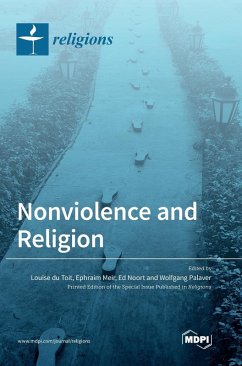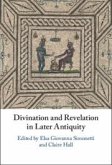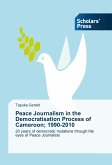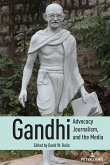This reprint discusses the relation between nonviolence and religion by adopting Mohandas K. Gandhi's concept of satyagraha as a starting point and by also discussing nonviolent hermeneutics of holy scriptures with a special emphasis on interpretations of the Qur'an. The first part consists of chapters that directly deal with Gandhi's concept of nonviolence and how it influenced later faith-based peace activists. By reading Gandhi's active nonviolence through the lens of Judith Butler's recent work on nonviolence, it engages with contemporary discussions about violence and nonviolence and also reflects on how nonviolence relates to gender. It also looks at how Gandhi related to different religions and further broadens the usual focus on physical violence by addressing economic violence and environmental degradation. Gandhi's view of Judaism and Zionism is critically discussed in one chapter. The second part comprises contributions that study the use of holy scriptures in relation to (non)violence, its problems, its boundaries and its inspiration. Religious authoritative texts play a major role in the continuation and legitimation of connected belief systems. Again, Gandhi's own nonviolent hermeneutics of holy scriptures are investigated and his interpretation of the biblical figure of Daniel is especially discussed. Three contributions deal with the interpretation of the Qur'an and its potential for nonviolence. A concluding chapter provides a range of hermeneutic guidelines for an Islamic theology of nonviolence.
Hinweis: Dieser Artikel kann nur an eine deutsche Lieferadresse ausgeliefert werden.
Hinweis: Dieser Artikel kann nur an eine deutsche Lieferadresse ausgeliefert werden.









